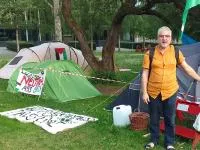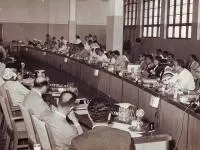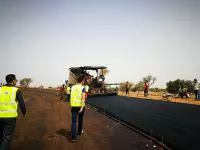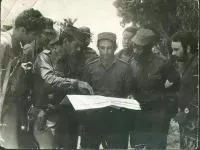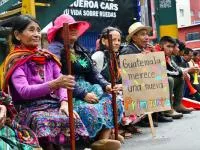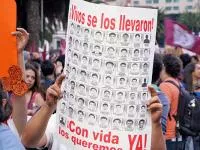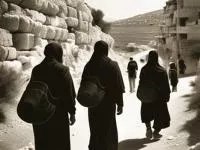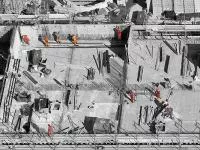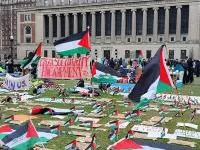GD 14.2 - August 2024

Global Dialogue is available in multiple languages!
Select the language to download the issue.
Editors:
Breno Bringel.
Assistant Editors:
Vitória Gonzalez, Carolina Vestena.
Associate Editor:
Christopher Evans.
Managing Editors:
Lola Busuttil, August Bagà.
Consultants:
Michael Burawoy, Brigitte Aulenbacher, Klaus Dörre.
REGIONAL EDITORS
Arab World: (Lebanon) Sari Hanafi, (Tunisia) Fatima Radhouani, Safouane Trabelsi.
Argentina: Magdalena Lemus, Juan Parcio, Dante Marchissio.
Bangladesh: Habibul Khondker, Khairul Chowdhury, Bijoy Krishna Banik, Shaikh Mohammad Kais, Mumita Tanjeela, Abdur Rashid, Mohammed Jahirul Islam, Rasel Hussain, Md. Shahidul Islam, Helal Uddin, Masudur Rahman, Yasmin Sultana, S. M. Anowarul Kayes Shimul, Ruma Parveen Hashu, Rashed Hossain, Ekramul Kabir Rana, Farheen Akter Bhuian, Khadiza Khatun, Arifur Rahaman, Md. Shahin Aktar, Suraiya Akhter, Alamgir Kabir, Taslima Nasrin, Nur A Habiba Mukta.
Brazil: Fabrício Maciel, Andreza Galli, José Guirado Neto, Jéssica Mazzini Mendes, Ricardo Nóbrega.
France/Spain: Lola Busuttil.
India: Rashmi Jain, Manish Yadav.
Iran: Reyhaneh Javadi, Niayesh Dolati, Elham Shushtarizade, Ali Ragheb.
Poland: Aleksandra Biernacka, Anna Turner, Joanna Bednarek, Urszula Jarecka.
Romania: Raluca Popescu, Raisa-Gabriela Zamfirescu, Bianca Elena Mihăilă.
Russia: Elena Zdravomyslova, Daria Kholodova.
Taiwan: Wan-Ju Lee, Tao-Yung Lu, Chien-Ying Chien, Zhi Hao Kerk, Mark Yi-wei Lai, Yun-Jou Lin, Yu-wen Liao, Yun-Hsuan Chou.
Turkey: Gül Çorbacıoğlu, Irmak Evren.
GD 14.2 - August 2024
Editorial
As we close this issue of Global Dialogue, Gaza lies in ruins. We cannot look away. That is why this issue begins and ends with the war in Gaza. In our regular interview, Norwegian sociologists Thora Bjørke Sandberg and Helle Haglund interview former ISA president Sari Hanafi. As a Syrian-Palestinian, Hanafi lived in Palestine during the second intifada, the al-Aqsa intifada. He experienced firsthand what it is like to live under what he calls a ‘spacio-cidal’ Israeli project. In this conversation, he presents his reflections on the ongoing war in Gaza, calls for an institutional boycott of Israeli institutions, and discusses some common interpretations of the war that he considers inadequate or wrong.
In this issue, South-South and North-South relations are the focus of two thematic sections. In the first, organized by Carolina Vestena, Eric Cezne, and Marie Stiller, South-South cooperation is interrogated through the dynamics of hierarchization and racialization. They argue that it is crucial to look at broader forms of domination undergirding South-South cooperation in order to analyze global cooperation challenges. The articles in this section seek to do that going beyond the ideas of symmetrical cooperation and mutual help. In particular, they discuss how the real-life experience of South-South cooperation is marked by interpersonal and institutionalized forms of racialization.
The following section explores the synergy possibilities between degrowth in the Global North and post-extractivist alternatives from the Global South. Taken together, the different articles in this section explore issues such as global asymmetries and North-South relations, decolonial global alliances against green growth, the need to contest the framework of ‘just eco-social transitions’ or the different paths to building a grassroots energy transition, and a decolonial climate justice movement that has alternatives to capitalism and the defense of life at its core. This section is inspired by broader dialogues carried out by the Ecosocial Pact of the South and its allies in the Global South and North, as portrayed in the book The Geopolitics of Green Colonialism: Global Justice and Ecosocial Transitions.
The section “Open Movements” presents an overview of the role of protests and social movements in contemporary political processes in four Latin American countries. In Guatemala, Ana Silvia Monzón examines how indigenous and popular protagonism has been a key feature for the election of the current progressive president, the sociologist Bernardo Arévalo. In the Chilean case, Carmen Gemita Oyarzo discusses the expectations of change generated by the constituent process, the reasons for its defeat, and the subsequent reconfiguration of movements. Furthermore, Julián Rebón analyzes the beginnings of the resistance against Milei during his first hundred days in office, while Jesús Gómez-Abarca takes stock of ten years of impunity in Mexico through the case of the 43 students who disappeared in Ayotzinapa.
In the theoretical section, Nadia Bou Ali and Ray Brassier elaborate on the notion of “surplus population” as a characterization of the unemployed masses. This original article is being published here in partnership with the Alameda Institute.
Lastly, in our “Open Section,” Simon Schaupp discusses what labor conflicts can teach us about the relationship between the capitalist labor process and the ecological crisis, while Qatari sociologists Mohamed Zayani and Joe F. Khalil present some of the main trends and consequences of digital transformations in the Middle East. The latest article is a call – perhaps more than that, a shout – signed by 158 Palestinian academics and staff of Gaza universities. They call on academics and universities around the world to help them resist Israel’s campaign of ‘scholasticide’ and rebuild their universities. As Sari Hanafi said in the opening interview of this issue, scholars and academic institutions have a social and moral responsibility. I would add that no global dialogue is really possible if we don’t fight against hierarchies and colonial and authoritarian powers.
Breno Bringel, editor of Global Dialogue
Global Dialogue can be found in multiple languages.
Submissions should be sent to globaldialogue@isa-sociology.org.

